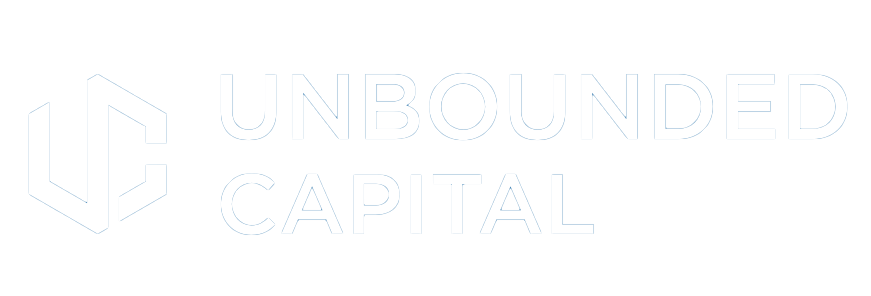Supply chain management has long been discussed as a vertical primed for disruption by the rise of Bitcoin and other distributed ledger technologies (DLTs), and for good reason. Existing supply chains need precisely what these technologies have promised to provide: efficiency and transparency. To date, no blockchain based supply chain solution has seen major success. While some might conclude that this invalidates the blockchain-for-supply-chain hypothesis, at Unbounded Capital we think the fault for this lack of early success lies on the failure of popular blockchains and DLTs like Ethereum or Hyperledger to achieve the goal of high scalability and efficiency. Thankfully, today this is no longer the case. With Bitcoin (BSV) now restored and unconstrained, entrepreneurs finally have a strong blockchain foundation from which to build and create solutions for any number of problems that require increased efficiency and transparency. In the Norway based supply chain company UNISOT, we now have an experienced team building on the only capable, scalable, secure, and public blockchain foundation of Bitcoin which we believe will finally deliver enterprise grade solutions to revolutionize how consumers and businesses interact with global supply chains.
The Problem
Supply chains are highly complex and interconnected systems that often, and increasingly, span the globe. Because of their high degree of interconnectivity, a seemingly insignificant change at any one point in the system can have a ripple effect that requires all subsequent actors to alter their behavior. This necessitates each actor to have maximal visibility into their counterparts so they can be alerted to any relevant changes in real time and most effectively react.
Unfortunately, the incentive for companies to silo their data makes this type of communication difficult. Supply chain actors typically don’t have this degree of visibility and unavoidable errors, delays, and inefficiencies are the norm. Surprisingly, this is even true of intra-organization communication where any one company’s best-practices might be distinct to each department, each requiring unique digital structures to store and manage information. Either inter or intra organization, the result of existing processes is often a hodgepodge of connected but asynchronous data silos. If each component in a supply chain stores, manages, and moves data differently, every additional link step in the chain creates a slighter higher barrier to an efficient free flow of information.
The scope of these problems is massive. Supply management is one of the largest capital draws on the planet at $58.5 trillion dollars, which accounts for roughly 66% of global GDP. Because of this lack of visibility and inefficiency of existing solutions, upwards of $2.5 trillion of capital is tied up. If communication could be more streamlined, massive amounts of capital could be allocated towards more productive ends.
The Solution
This is why we are so excited about UNISOT and Bitcoin. UNISOT stands for “Universal Source of Truth” and this is exactly what it provides to global supply chains through its ERP solution built around Bitcoin. Rather than communicating an update to a piece of information from party A to B to C all the way through Z, wouldn’t it be easier if one update was made to one piece of information that each party was referencing? This is, in essence, what Bitcoin allows by serving as the world's first highly scalable, public, immutable ledger. Through writing and reading information to and from Bitcoin, each actor in the supply chain can operate on the most up to date information and coordinate their actions more effectively. UNISOT makes using Bitcoin for this purpose simple. Their pilot program Seafood Chain is focused on providing companies in Scandinavia's $11 B seafood industry a simple tool kit to interact with one another through UNISOT’s user friendly web dashboard and mobile application, all while seamlessly leveraging Bitcoin’s public ledger. Physical items that are passed through multiple intermediaries can be easily tracked via their “digital twin” which lives on the Bitcoin ledger.
Take for example, a hypothetical path from fishery to sushi restaurant. A fish that is raised at Fishery ABC is linked to its “digital twin” which UNISOT makes incredibly simple to create. Important information about the fish like its age, diet, temperature, size, etc can be tracked and added to this digital twin over time. When it's time for Fishery X to sell the first to Wholesaler Y they transfer ownership of the digital twin to the wholesaler who then continues to monitor and update stats like temperature conditions. When Wholesaler Y then sells the fish to Sushi Restaurant Z they again transfer ownership. The chef at Sushi Restaurant Z now has access to the relevant information throughout the entire life cycle of his fish. This information could even be made available to diners who visit the restaurant. If a restaurant boasts that their sushi was caught on the same day it is served this information could be verified by customers.
The potential for Bitcoin to revolutionize global supply chains is immense. UNISOT’s role of building the tools which make leveraging Bitcoin for this purpose simple presents them an enormous opportunity. UNISOT understands Bitcoin’s potential to play this role in our highly interconnected global economy, is first to pursue Bitcoin for these ends, and has an experienced team capable of realizing this vision. We have extreme confidence in UNISOT’s CEO Stephan Nilsson, who has decades of ERP and supply chain integration experience. Today UNISOT is focusing on Scandinavia’s seafood industry by offering ERP integrations to access Bitcoin via their enterprise supply chain management platform. Their Seafood Chain product is in beta right now.
To learn more about Seafood Chain and UNISOT visit their website or watch the live demo of their product they presented at Coingeek London.

